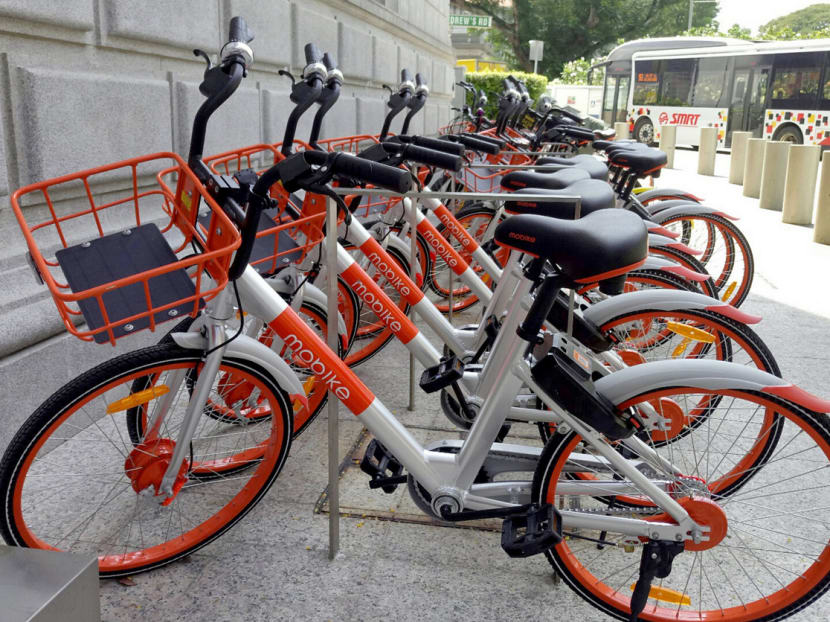Chinese firm Mobike enters Singapore’s bike-sharing market
SINGAPORE — Joining the growing bike-sharing service battle here, Chinese firm Mobike has deployed smart bikes — which do not have to be returned to fixed stations — at various spots, including the National University of Singapore, Singapore Management University and Republic Polytechnic, as well as the National Gallery of Singapore.
SINGAPORE — Joining the growing bike-sharing service battle here, Chinese firm Mobike has deployed smart bikes — which do not have to be returned to fixed stations — at various spots, including the National University of Singapore, Singapore Management University and Republic Polytechnic, as well as the National Gallery of Singapore.
The firm declined to say how many bikes it has deployed, but said it is also eyeing Pasir Ris, Tampines, Punggol and Woodlands as potential areas to venture into next.
Mobike, which is operating in 33 Chinese cities and have recorded over 400 million rides since its launch in April last year, joins homegrown firm oBike and Chinese firm ofo in the local bike-sharing scene.
To start a ride, users enter their personal details on the Mobike app, then scan the QR code given to them to unlock a bike.
They can drop off the bike at any bike-parking area, such as at void decks and MRT stations, and manually lock it.
With the help of GPS technology, Mobike will be able to track down bikes that have been inappropriately returned, or rogue users who try to make away with the bikes.
Amid grouses about indiscriminately parked bikes, Mobike hopes to encourage “good consumer behaviour” by rewarding users with credits for spotting and returning stray bikes, its head of international expansion Florian Bohnert told TODAY.
The technology will also allow staff to deploy Mobikes to areas with greater demand, he added.
For a start, Mobike’s promotional rental rate is 50 cents for 30 minutes’ use — half the standard rate. Mobike was unable to say when the promotion will end.
Homegrown firm oBike was one of the first to revive the bike-sharing market here with its fleet of stationless smart bikes which also operate using QR codes. They can be rented for a dollar every half hour.
When contacted, oBike’s founders declined to say how many orders they receive each day, sharing only that there are a “few thousand bikes” in Singapore.
ofo, another player headquartered in China, also wheeled its way to Singapore earlier this year. Its bikes are also stationless but have to be unlocked using a four-digit code sent to the rider’s mobile device.
This is Mobike’s first overseas foray. It chose to launch services in Singapore because of the Republic’s vision of an integrated and car-lite transport system. Its bikes are also “green”, with a solar panel that powers its internal system.
The influx of private bike-sharing services has prompted the Government to reassess the national bike-sharing scheme, said Second Transport Minister Ng Chee Meng during the debate on his ministry’s budget earlier this month.
The Land Transport Authority is studying bids for a tender called last July for an operator to own, build, operate and maintain a 1,000-bike-sharing network with 100 docking stations in the Jurong Lake District for eight years. The scheme is slated to start at the end of this year. KELLY NG







